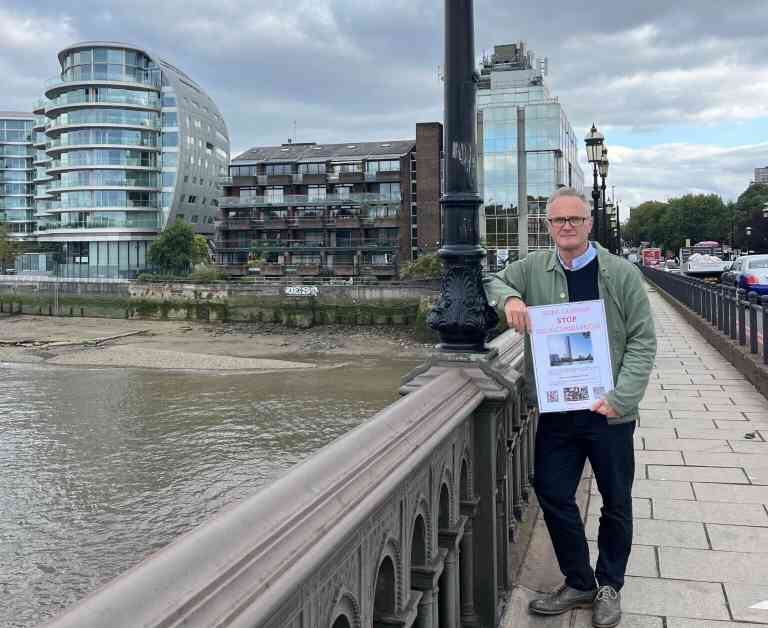The dispute over a controversial tower block, One Battersea Bridge (OBB), in London continues as developers and residents clash over the proposed building. Rockwell Property, the developer behind OBB, purchased the site for £45 million and aims to build a 28-storey tower to create a profit. However, residents, led by journalist and activist Rob McGibbon, have raised concerns about the impact of the development on the surrounding area.
McGibbon, who has lived in the area since 1995, has spearheaded the Stop One Battersea Bridge (SOBB) campaign, which has garnered over 4,000 signatures and has the support of celebrities like Mick Jagger and Eric Clapton. The campaign aims to preserve the historic vista of the area and prevent what they see as excessive development.
In response to the opposition, Rockwell has revised its plans, increasing the percentage of affordable housing to 50% and reducing the building height to 28 storeys. Despite these changes, McGibbon remains critical of the proposal, arguing that the development would still be out of place in the area. He also points out that the site is located in a zone designated for mid-rise buildings, limiting structures to a maximum of 12 storeys.
Rockwell, backed by Cerberus Capital Management, emphasizes the benefits of the development, including affordable office space, a community area, and public improvements. The company’s managing director, Nicholas Mee, believes that the proposal aligns with the needs of the Wandsworth community.
While some residents have voiced support for OBB, many others have submitted objections to the plans. McGibbon criticizes the use of template letters by supporters of the development, calling it a tactic to manipulate public opinion. He urges the council to reconsider the proposal and explore alternative options for the site.
The debate surrounding OBB highlights the challenges faced by local councils in balancing the need for affordable housing with preserving the character of neighborhoods. McGibbon’s plea to the council to reconsider the development reflects a broader concern about the impact of large-scale projects on communities and the importance of thoughtful urban planning.












